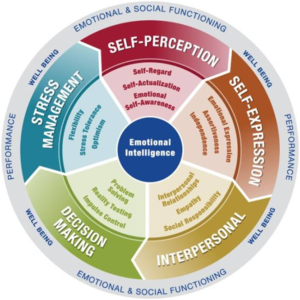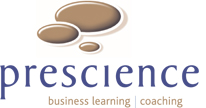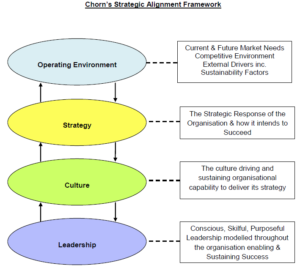
Copyright © 2011 Multi-Health Systems Inc. All rights reserved. Based on the original BarOn EQ-i authored by Reuven Bar-On, copyright 1997.
We appreciate that the idea of Emotional Intelligence has been about for some time – and as a concept pre-dates the work of Daniel Goleman who arguably did so much to popularise the subject.
Emotional Intelligence still matters though. Given that leadership is predicated on influence and engagement (you can’t have leadership without ‘follower-ship’) our capacity to understand our own emotions, the impact they have and the emotions of others is of critical importance.
The EQi 2.0 Emotional Intelligence questionnaire :
The EQi 2.0 comprises five composite scales and fifteen subscales that together give an overall rating and impact Performance and Emotional and Social Functioning. The five EQi 2.0 composite scales are:
Self-Perception – The “inner-self”: assesses feelings of strength, confidence and persistence in pursuit of personally meaningful goals and understanding the impact of emotions on thoughts and actions.
Self-Expression: the outward expression, or action component, of one’s internal perception. Assesses the propensity to remain self-directed and expressive of thoughts and feelings, while communicating these in a constructive and socially acceptable way.
Interpersonal: the ability to develop and maintain mutually satisfactory relationships, understand and articulate another’s perspective, act responsibly while showing concern for others e.g. the team, or wider organisation.
Decision Making: understanding the impact emotions have on decision-making, including the ability to manage impulses, remain objective and avoid rash / ineffective problem solving.
Stress Management: capacity to cope with emotions associated with change, and unfamiliar and unpredictable circumstances. The ability to remain positive about the future and resilient in the face of setbacks and obstacles.
Based on the work of Dr Reuven Bar-On the EQi 2.0 questionnaire is normed, validated and reliable. The questionnaire is available in two main formats, a self-completion version and also a 360 feedback version which is ideal in enabling people to gain insight into how they see themselves and how that compares to what they convey to others.
Currently we are using the EQi 2.0 as part of our 1:1 coaching activties and also as part of a leadership programme enabling individuals to explore the impact of their leadership style in influencing / engaging others. If these may be of interest to you, or if you would like further information about the EQi 2.0 questionnaire, please contact us at info@prescience.eu.com






Recent Comments